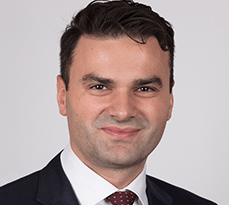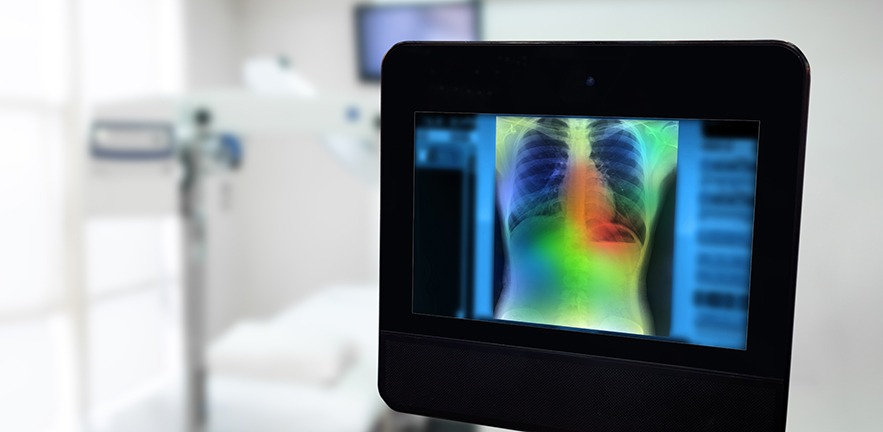Razvan Ionasec (EMBA 2018) has been a computer buff since his childhood in Romania. His team at Siemens has now developed an artificial intelligence-based assistant to help radiologists evaluate medical scans.
Razvan Ionasec had been working for several years on machine learning and computer vision technologies when he received a personal letter from a father seeking help for a son diagnosed with a complex congenital cardiovascular disease.

“He had read about our research in the field of medical image analysis,” says Razvan, a native of Romania. “It was too early in the development cycle at that time, but it inspired me to pursue my PhD so I could work on problems that have real impact on patients.”
So Razvan focused on machine learning and medical image analysis in earning his PhD at the Technical University of Munich in 2010, started his career in Princeton, New Jersey, with Siemens, and in 2017 he became the company’s Global Head of Artificial Intelligence Products.
“In healthcare, as the technology advances and we get closer to artificial general intelligence (AGI), we will experience a profound paradigm shift in clinical research and medicine itself,” says Razvan. “However, the disruption starts with a business problem and business decision, because even so powerful a technology as AGI will only be the enabling means to an end.”
This realisation led Razvan to enrol last year as an Executive MBA student at Cambridge Judge Business School, a 20-month programme that allowed him to continue his role at Siemens in Erlangen, Germany.
“Choosing Cambridge was a no-brainer, given the reputation of the University and the Business School, its focus on diversity, and its location at the epicentre of innovation and entrepreneurship in biotech,” he says.
This summer, the Siemens Healthineers team headed by Razvan announced that a new artificial intelligence-based radiology product called the Al-Rad Companion Chest CT was awarded a certification that allows its marketing in Europe. The intelligent software assistant can automatically evaluate CT scans of the chest, helping radiologists interpret those images faster and more precisely. The technology works by differentiating between the various structures of the chest, highlighting them individually in order to measure potential abnormalities automatically.
“Think about an AI assistant that provides insights on issues such as potential cancerous lung lesions or dilated aortas, and is used in everyday clinical practice,” Razvan says of the product’s potential. “It is deployed within a cloud computing infrastructure, so this allows it to scale quickly with new AI skills and makes it easy for potential users around the world to access it.”
Among the most immediate applications in healthcare, he says, AI reduces human errors while lowering labour costs at increased productivity of routine procedures, which frees up resources for addressing more complex cases and improve patient experience.
Razvan says his passion for computing began with a childhood love of computer games despite the “horrible sound” of his family’s primitive cassette-based device. After getting his own first PC, he and a friend programmed it to develop an Internet-based food delivery business in partnership with a local restaurant in his hometown of Timisoara, Romania, in the summer of 2001. This led to studies in electrical engineering and computer science in Romania, Germany, the US, and then on to his PhD in Munich.
“The core problems of the healthcare system today can be explained through data,” he says. “Making data more quantitative, structured, actionable and available will help address the most fundamental challenges: quality, cost, access and delivery.
“Here is where technologies like artificial intelligence and cloud computing come into play. These are key ingredients for data-driven solutions to the macroeconomic challenges affecting healthcare systems worldwide.”
Razvan’s EMBA class in Cambridge, which is due to graduate in 2020, includes quite a few professionals with medical or biotech backgrounds, including people focusing on neuroscience, primary care, orthopaedic and trauma surgery, and cancer research.
“Healthcare is personal, it affects all of us in the most direct way,” he says. “Through my work I’d like to empower both patients and clinicians to make better decisions for healthier lives. I’m excited to help unlock the enormous societal and economic value by applying the right technology to the right business problems.”
Razvan is interested in hearing from…
…everyone passionate about disruptive innovations in the digital health space.


